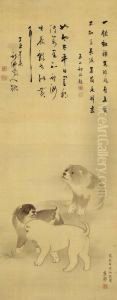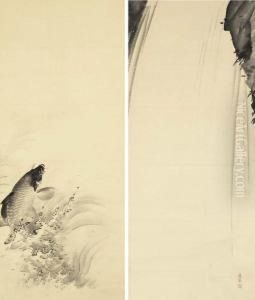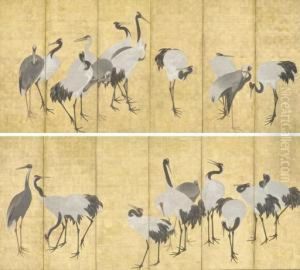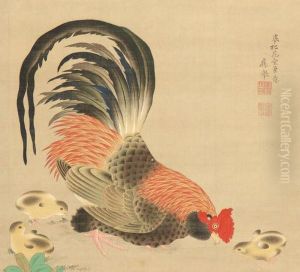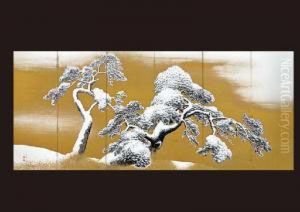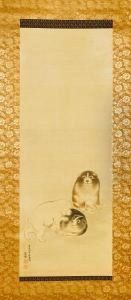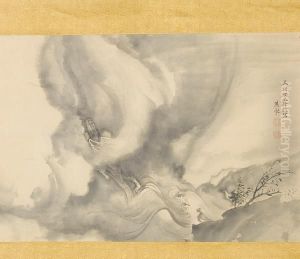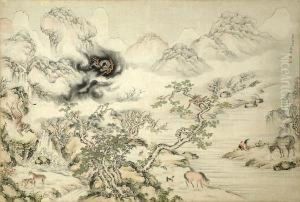Okyo Maruyama Paintings
Maruyama Ōkyo, born Maruyama Masataka, was a Japanese artist known for his innovative painting style that fused Western realism with Eastern decorative design. Ōkyo was born in 1733 in Anma, a village in the Tamba province, which is now part of present-day Kyoto Prefecture. He began his artistic career as a painter of dolls' faces in his local area before moving to Kyoto, where he studied under the accomplished Kano school painter Ishida Yūtei.
Ōkyo's approach to painting was revolutionary for his time; he was deeply influenced by the linear perspective and shading techniques found in Western art, which had begun to enter Japan through Nagasaki. He combined these elements with the more traditional Japanese styles of painting, particularly the naturalism found in the Rinpa school and the narrative quality of the Kano school. His work is characterized by careful observation of nature, precise draftsmanship, and a unique blend of Eastern and Western artistic principles.
In 1767, Ōkyo founded the Maruyama school of painting, which continued to influence Japanese art long after his death. His school promoted a more realistic depiction of subjects, in contrast to the more stylized and abstract forms of earlier Japanese art. Notable students of the Maruyama school included artists such as Matsumura Goshun, who later founded the related Shijō school.
Throughout his career, Ōkyo painted a wide range of subjects, including landscapes, animals, and human figures. One of his most famous works is the 'Byobu of Geese', a screen painting that showcases his skill in depicting animals with life-like accuracy and emotional expression.
Maruyama Ōkyo's contributions to Japanese art were significant, and his legacy is evident in the continuing popularity of the Maruyama school. His work was not only appreciated in his own time but also continues to be celebrated for its innovative blend of Eastern and Western aesthetics. Ōkyo died in 1795, leaving behind a body of work that continues to influence artists and captivate art lovers around the world.
